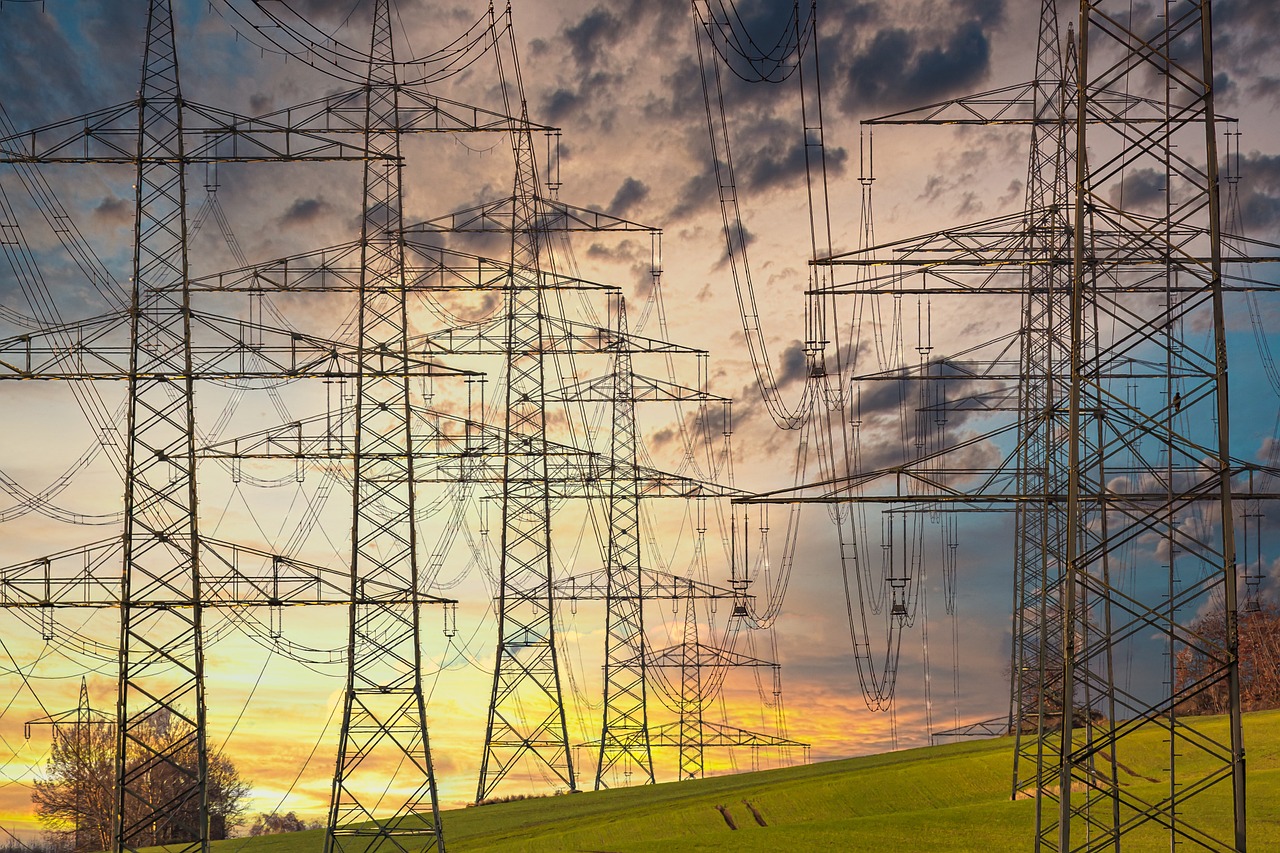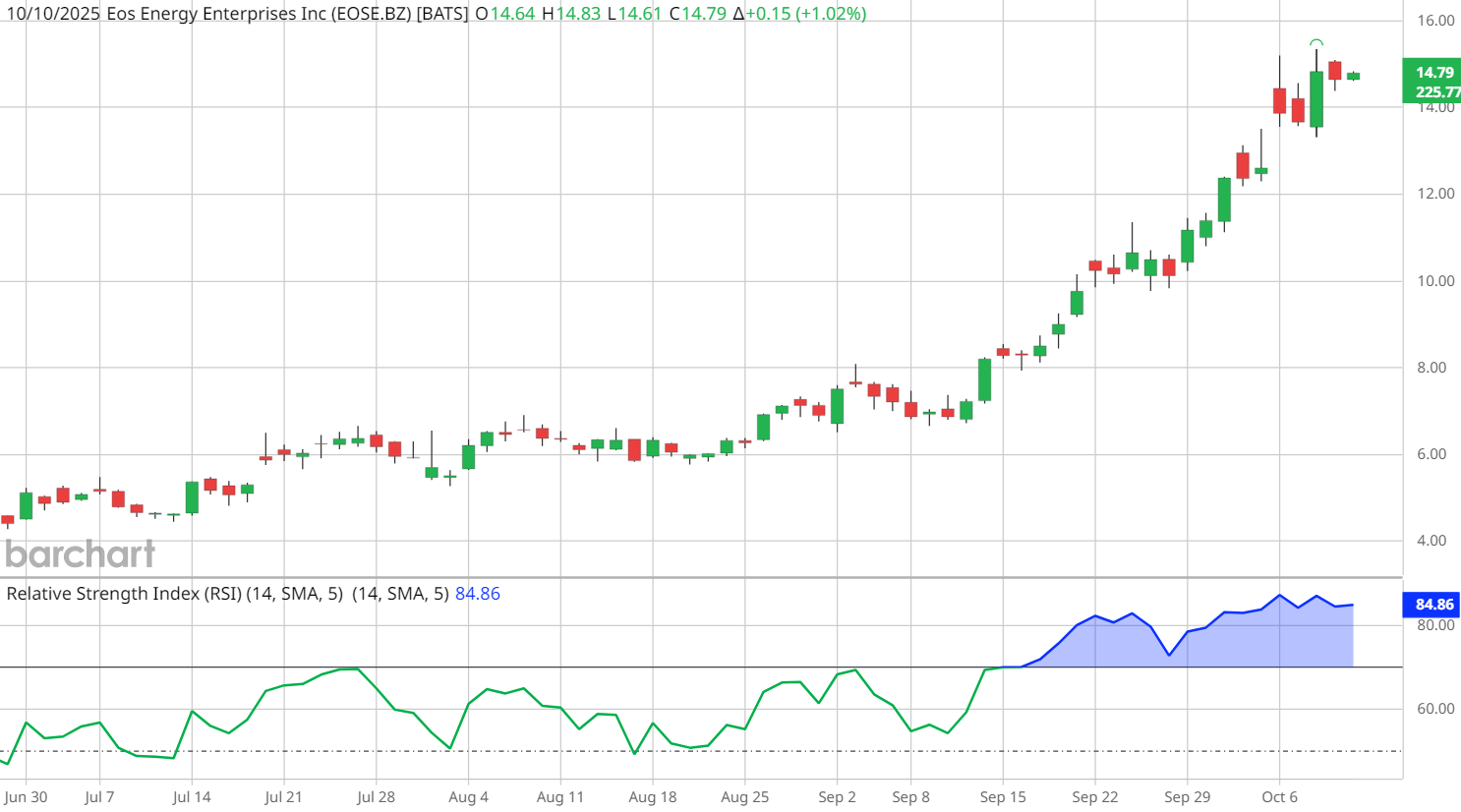
According to Market on Close host John Rowland, the next big trade isn’t just in electric vehicles (EVs). It’s in the batteries that power them.
“23% of all new capacity added to the U.S. electrical grid now comes from battery storage — second only to solar,” our Senior Market Strategist explained. “And the grid needs to expand by 20–30% between now and 2030 just to satisfy AI’s appetite for power.”
According to global risk firm DNV, in fact, data center power demand could grow tenfold by 2030. Artificial intelligence (AI), EVs, and renewable energy are converging to create a new battery arms race, and understanding this supply chain could be the key to finding the next Tesla-sized investment opportunity.
Inside the EV Battery Supply Chain
Battery production isn’t just about lithium anymore. John broke down how investors can think about the ecosystem and which areas to watch:
- Battery Producers: Core EV and utility battery makers like Tesla (TSLA), Eos Energy (EOSE), and QuantumScape (QS).
- Storage Systems (BESS): Grid-scale energy storage and efficiency systems such as Stem Inc. (STEM) and Fluence Energy (FLNC).
- Battery Management Systems (BMS): Software and control technology companies like EnerSys (ENS) and Sensata Technologies (ST).
- Raw Materials and Metals: Key suppliers of lithium, copper, zinc, and rare earth elements such as Lithium Americas (LAC), Albemarle (ALB), Southern Copper (SCCO), US Rare Earth (USAR) and MP Materials (MP).
Tip from John:
“Listen for words like BESS, BMS, and storage systems — these are where the real innovation (and profits) are happening.”
Why Zinc May Be the Dark Horse
While lithium remains the dominant battery metal, John spotlighted Eos Energy Enterprises (EOSE) for its unconventional approach:
“They’re building batteries made out of zinc — not lithium ions. Zinc doesn’t degrade the way lithium does, so the batteries last longer and are more scalable for utilities.”
Plus, amid rising fears of lithium-ion facilities catching fire, John adds, “Zinc is a stable metal, and there is practically zero chance of electrical fires” – which means it’s not nearly as controversial with “NIMBY” types.
EOSE in Focus
John added that Eos already has “a lot of backorders, government and utility contracts, and has moved from prototype to pilot to scalability quickly.”
It’s still an early-stage bet, but one that could benefit as the energy grid modernizes to handle AI data centers, EV adoption, and renewable energy storage.
Right now, John notes that EOSE continues to show extremely overbought conditions at both the daily and weekly levels. However, he says that a weekly close above $14.20 would put the psychologically significant $20 level into play.

Risks and Realities
The biggest challenge? Competing technologies and rising material costs.
Lithium and rare earth price volatility can squeeze margins. Hydrogen, sodium, and zinc alternatives all fight for industrial scalability. Plus, regulatory hurdles and environmental approvals can delay production timelines.
But as John emphasized, investors aren’t just betting on materials. They’re betting on commercialization speed and durability of demand.
How to Track the Trade on Barchart
Keep your watchlist updated with these Barchart tools:
- Battery Stocks & ETF Watchlist
- Stock Screener – Filter EV companies by sector, volume, or performance
- Top 100 Stocks List – Track trending stocks to discover your own top picks
The Bottom Line
As AI and EV growth collide, energy storage becomes the new oil. Lithium may have led the first wave, but zinc, copper, and advanced storage systems could lead the next one.
“The question is who gets the quickest path to commercialization,” John said. “That’s where I want to be.”
Watch John’s quick clip below and stream the full breakdown on Market on Close →
- Track EOSE and top battery stocks to add to your watchlist
- Explore energy ETFs and EV stocks for more exposure to the energy race.







